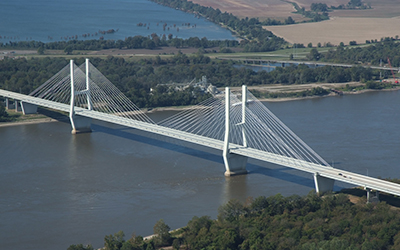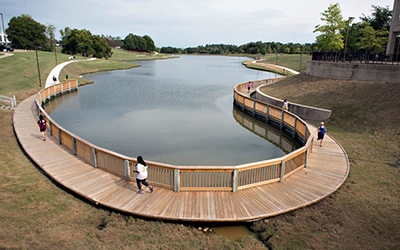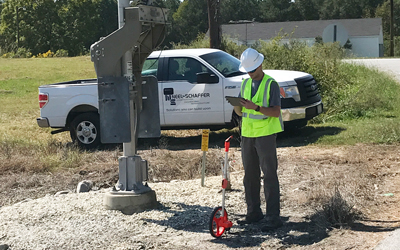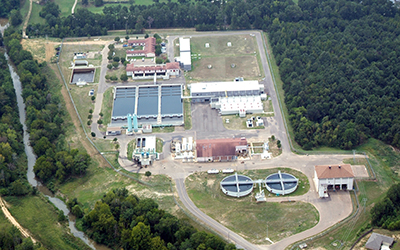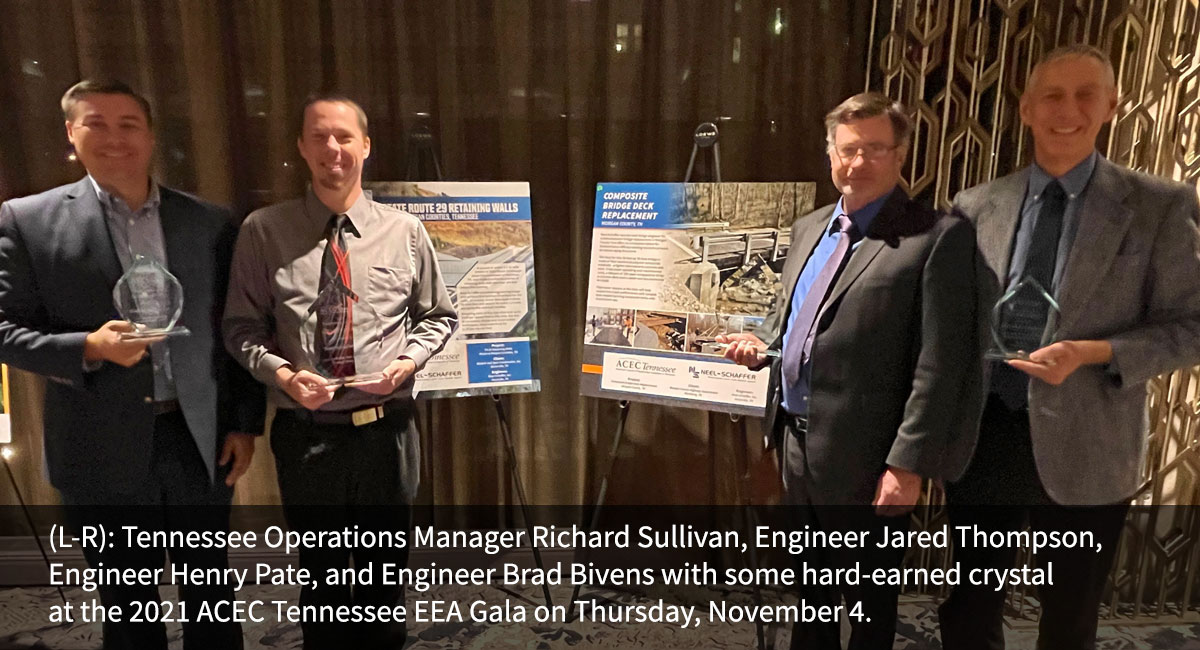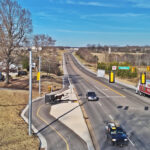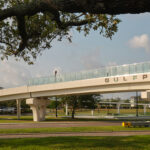NASHVILLE, Tenn. (November 5, 2021) – Neel-Schaffer was the Lead Design Engineer for an innovative bridge replacement project in rural Morgan County (TN) that was chosen as the Grand Award Winner (Small Projects) in the “Structural Systems” category of the ACEC Tennessee Engineering Excellence Awards (EEA) contest.
The honor was announced during the organization’s 2021 EEA banquet held on Thursday, November 4, at the Loews Vanderbilt Hotel in Nashville.
Neel-Schaffer was part of a large team that donated labor, services, and materials to build the new bridge at no cost to Morgan County. The bridge is small in stature (18 feet long, 25 feet wide) but could have huge implications and signal a pivotal change for the industry and counties seeking ways to upgrade infrastructure on small budgets.
This new structure uses a traditional substructure comprised of concrete abutments and steel support beams. But instead of traditional poured-in-place concrete, this bridge on narrow, two-lane Elizabeth Church Road has a deck that was fabricated in a controlled off-site environment using fiber-reinforced polymer (FRP) composite material.
A benefit-cost analysis revealed that if Morgan County had been charged, the demonstration bridge would have been slightly more expensive to build than one with a poured-concrete deck. However, annual maintenance and operation costs for the composite deck are estimated to be less than half of that for a concrete deck bridge. Additionally, composite industry leaders say the composite decks could have a 100-year lifespan, compared to 50 years for a traditional poured-concrete deck, which would result in tremendous savings in replacement costs.
Because the composite deck is 90-percent lighter than a poured-concrete deck, installation costs are lower. In this case, instead of a crane, a forklift was used to lower the bridge deck into place.
The bridge, which is featured (pages 6-8) in the November-December issue of Tennessee Public Works Magazine, was completed in February 2021 and was re-opened to traffic soon after. Although it is not in a high-traffic area, it is used by heavily loaded logging trucks, which will give the new deck a thorough test. Sensors built into the composite deck will collect data via cloud computing that University of Tennessee researchers will use to monitor traffic counts and compile safety, wear, and overall performance data of the new deck and surface.
If this demonstration bridge performs as industry experts expect, it will become the model for other counties around Tennessee and the country to follow for lower-cost, higher-return bridge replacements.
“I am tickled to death about this project,” said Joe Miller, the Morgan County Highway Superintendent. “If it performs like we think it’s going to, I can see it being a big game-changer for highway departments around the state.”

